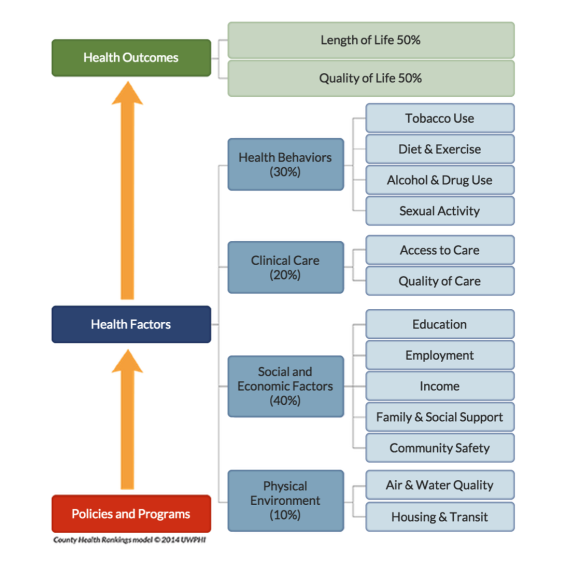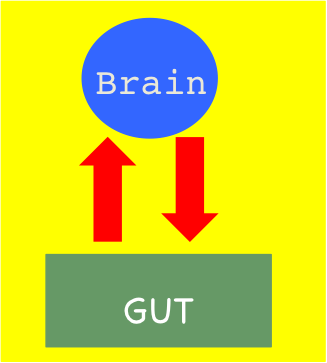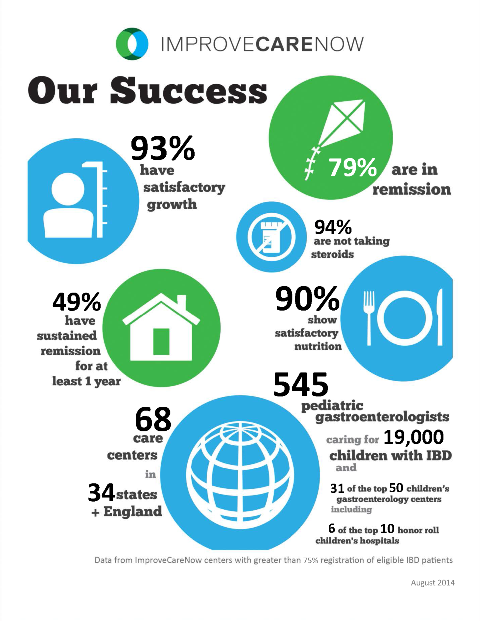Category: Doctors
How to pick a surgeon
 Several years ago a close friend asked me to recommend a surgeon for an elective procedure. I told her I had a colleague with a great bedside manner who also had great technical skills. He was absolutely the person I would go to if I needed general surgery. My friend went to see him but ended up using a different surgeon. When I asked her what she liked about the other guy, she said that he told her that he was “the best” surgeon to perform the procedure. She didn’t like his personality but he instilled her with confidence.
Several years ago a close friend asked me to recommend a surgeon for an elective procedure. I told her I had a colleague with a great bedside manner who also had great technical skills. He was absolutely the person I would go to if I needed general surgery. My friend went to see him but ended up using a different surgeon. When I asked her what she liked about the other guy, she said that he told her that he was “the best” surgeon to perform the procedure. She didn’t like his personality but he instilled her with confidence.
The truth is that there is no single “best” surgeon for everyone. And there are many factors that go into picking a surgeon: insurance issues, convenience, etc. And there are advantages to going to a surgeon who works well with our primary care physician (communication) and in having surgery in a place that has an electronic medical record that our primary care physician can access (coordination of care). But the most important thing is how skilled the surgeon is at performing the surgery we need. How do we figure that out? The short answer is that we don’t.
Using art to heal
 Because Health is Life, our lifestyles are just as important to our health as going to the doctor or taking our medicines. In a paper published June 30, 2015 in the Annals of Internal Medicine, a study looking at survey data found that half the heart disease deaths in the US from 2009-2010 were caused by 5 factors all of which can be modified through healthy behavior: smoking, obesity, high cholesterol, diabetes and high blood pressure. But many of these behaviors are difficult to change and are influenced by our families, our culture and our community.
Because Health is Life, our lifestyles are just as important to our health as going to the doctor or taking our medicines. In a paper published June 30, 2015 in the Annals of Internal Medicine, a study looking at survey data found that half the heart disease deaths in the US from 2009-2010 were caused by 5 factors all of which can be modified through healthy behavior: smoking, obesity, high cholesterol, diabetes and high blood pressure. But many of these behaviors are difficult to change and are influenced by our families, our culture and our community.
This picture shows that clinical care by doctors and hospitals accounts for only about 20% of health outcomes. The picture comes from a project called County Health Rankings developed by the University of Wisconsin Population Health Institute (and supported by the Robert Wood Johnson Foundation) that looks at health by county in the US. Addressing factors like cigarette smoking, income, education, employment, housing and clear air can help make communities healthier places to live.
We need to find ways to build healthier communities and the arts may be one way to accomplish this.
Personal experiments
 During my medical training, we were taught that if a patient responds to a treatment, it doesn’t necessarily mean that every patient will respond in the same way. The results in a single patient might be due to chance so it was important to look at the results of well-designed research studies before we could conclude that the treatment really worked. In statistics, “N” refers to the sample size in an experiment so we referred to these individual observations as “N-of-1” experiments (and we did not look at them very favorably).
During my medical training, we were taught that if a patient responds to a treatment, it doesn’t necessarily mean that every patient will respond in the same way. The results in a single patient might be due to chance so it was important to look at the results of well-designed research studies before we could conclude that the treatment really worked. In statistics, “N” refers to the sample size in an experiment so we referred to these individual observations as “N-of-1” experiments (and we did not look at them very favorably).
Unfortunately, there are lots of problems with research studies – they take a long time to complete, the patients in the studies are very carefully selected and may be very different from you, there is often bias in the way the results are interpreted, etc.
What if doctors and patients had tools that allowed them to design high-quality experiments specifically for the individual patient?
Vaccines and trust
 Many years ago I worked in a travel clinic advising people about the immunizations they needed before visiting other countries. Sometimes shots were required for entry into a country, such as the yellow fever vaccine. But we also made sure that MMR (measles-mumps-rubella) and other vaccines were up-to-date. The reason was that while immunizations have been very successful in getting rid of measles (and other childhood illnesses) in the US, many countries still have outbreaks. The booster shots were not necessary in the US because we no longer had cases of measles. Until now.
Many years ago I worked in a travel clinic advising people about the immunizations they needed before visiting other countries. Sometimes shots were required for entry into a country, such as the yellow fever vaccine. But we also made sure that MMR (measles-mumps-rubella) and other vaccines were up-to-date. The reason was that while immunizations have been very successful in getting rid of measles (and other childhood illnesses) in the US, many countries still have outbreaks. The booster shots were not necessary in the US because we no longer had cases of measles. Until now.
We are seeing cases of measles (and other childhood illnesses) again because parents are increasingly refusing to get their kids vaccinated. The current outbreak of measles in California is causing a lot of public debate about how to force people to get their kids vaccinated. While we may need to find new ways to enforce vaccination, we also need to restore trust – people increasingly don’t trust doctors, pharmaceutical companies, government agencies or payers.
The gut and the brain
 We don’t normally think about the gut and the brain being connected. And yet many of us have gotten a stomach ache, nausea or diarrhea from stress or a feeling of “butterflies” from excitement. Or we may experience pleasure from certain foods or feel a need to eat when under stress.
We don’t normally think about the gut and the brain being connected. And yet many of us have gotten a stomach ache, nausea or diarrhea from stress or a feeling of “butterflies” from excitement. Or we may experience pleasure from certain foods or feel a need to eat when under stress.
The vagus nerve travels between the brain and other organs in the body and can transmit messages in both directions. The brain can send messages to the gut through chemicals (called neurotransmitters). The gut has its own nervous system (called the enteric nervous system or ENS) that controls digestion. But scientists now think that the ENS can also produce neurotransmitters to send to the brain.
The big question is whether the gut can actually cause symptoms and diseases of the nervous system.
The power of placebos
 Lots of people talk about the placebo effect but what exactly is it?
Lots of people talk about the placebo effect but what exactly is it?
The most reliable clinical studies compare a treatment that is being tested with a fake treatment (called a placebo). Generally, half the people in the study get the treatment and half get the placebo and the then the two groups are compared. In the case of pills the placebo is often a sugar pill. Researchers can even test the effectiveness of a surgical procedure by comparing it with a sham or fake procedure. In these studies (called randomized controlled trials or RCTs), patients (and their healthcare teams) don’t know who is getting the pill or procedure being studied and who is getting the placebo. The reason for this is that patients sometimes get better when they are given a placebo because they believe they will get better (called the “placebo effect”) or because their disease got better on its own.
So can patients get better just by believing they will get better? And can doctors actually prescribe placebos to help people get better?
Research in real time
 This past week, I was reminded of the problem of fraud in medical research when the British courts ruled that the mother of a child with autism had lied about her child’s symptoms. The woman was a supporter of Dr. Andrew Wakefield, the British doctor who published studies connecting the Measles Mumps and Rubella – MMR – vaccine to autism based on “data” he made up.
This past week, I was reminded of the problem of fraud in medical research when the British courts ruled that the mother of a child with autism had lied about her child’s symptoms. The woman was a supporter of Dr. Andrew Wakefield, the British doctor who published studies connecting the Measles Mumps and Rubella – MMR – vaccine to autism based on “data” he made up.
Published medical studies, especially randomized controlled trials, remain the most reliable way for doctors to make treatment decisions. But, in addition to fraud, there are many other problems with medical research studies including the fact that they cost a lot of money to perform and take a long time to complete. An even bigger problem is that research studies have not been done for most of the questions that doctors and patients want answered. And even if there is a relevant published study, the people in the study may be very different from you.
FODMAPs
 A few weeks ago, I was asked if I knew anything about the low FODMAP diet as a treatment for inflammatory bowel disease (IBD). I was sure this was yet another fad diet (or that the name was misspelled – seemed like FOD should be FOOD, right?) .
A few weeks ago, I was asked if I knew anything about the low FODMAP diet as a treatment for inflammatory bowel disease (IBD). I was sure this was yet another fad diet (or that the name was misspelled – seemed like FOD should be FOOD, right?) .
Imagine my surprise when I found detailed information about the diet and its use in treating irritable bowel syndrome (IBS) on the Stanford Health Care website. Irritable bowel syndrome is a chronic condition that causes abdominal pain, bloating, gas, diarrhea and other symptoms in the gut. It turns out that FODMAP is an acronym for Fermentable Oligosaccharide, Disaccharide, Monosaccharides and Polyol. All of these substances are found in certain foods and are types of carbohydrates. Researchers in Australia found that these carbohydrates are not well absorbed by the small intestine in people with IBS. As a result, the substances stay in the gut rather than being used by the body and they pull water into the gut. The FODMAPs can also be fermented by the bacteria in the gut which produces gas. All of this can lead to a bloating feeling, pain and other symptoms.
Patients and parents as partners – part II
 What if hospitals worked together to improve the care they deliver to patients with a particular disease (instead of competing with each other)? What if these hospitals considered patients and families their teachers and members of their teams? I’ve written before about the magic of the ImproveCareNow (ICN) network but even I am amazed at how quickly the interest in patients and parents as partners has grown within the network.
What if hospitals worked together to improve the care they deliver to patients with a particular disease (instead of competing with each other)? What if these hospitals considered patients and families their teachers and members of their teams? I’ve written before about the magic of the ImproveCareNow (ICN) network but even I am amazed at how quickly the interest in patients and parents as partners has grown within the network.
Paying patients for their expertise
 Thanks to the work of organizations like the Society for Participatory Medicine and patient advocates like e-patient Dave, the voice of the patient is being heard. And I’ve written before about organizations like the ImproveCareNow network where patients and families are treated as equal partners in quality improvement efforts.
Thanks to the work of organizations like the Society for Participatory Medicine and patient advocates like e-patient Dave, the voice of the patient is being heard. And I’ve written before about organizations like the ImproveCareNow network where patients and families are treated as equal partners in quality improvement efforts.
I love that patients and families are being recognized for their expertise and that healthcare organizations are starting to involve patients as team members from the beginning of projects. I also love that organizations like PCORI (Patient Centered Outcomes Research Institute) are recognizing the importance of asking patients the research questions and outcomes that are most important to them.
So this is all really good, right? Yes, but…